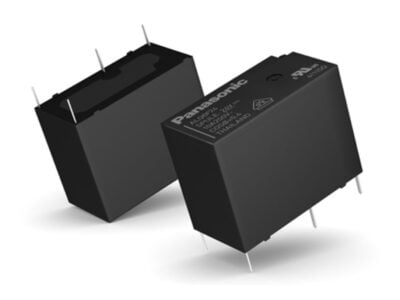
First 100G/lane optical PAM4 DSP PHYs with integrated TIA and laser driver
Broadcom has launched two families of optical PAM4 DSP PHY chips with integrated transimpedance amplifier (TIA) and laser driver that provide 100G/lane.
The Jesko BCM8741x and Gemera BCM8781x are optimized for 400G DR4/FR4 and 800G DR8/2xFR4 module applications and are built on Broadcom’s current 7nm 112G PAM4 DSP platforms. This enables 7W 400G DR4/FR4 and sub 14W 800G DR8/2xFR4 pluggable optical modules.
The chips are compliant to all applicable IEEE and OIF standards, capable of supporting MR links on the chip to module interface and support silicon photonics (SiPh) as well as discrete EML/PD based modules.
“Ever increasing compute density and networking bandwidths demand unrelenting quest for lower power, cost and form factor reduction,” said Vijay Janapaty, vice president and general manager of the Physical Layer Products Division at Broadcom. “Broadcom’s innovative and highly integrated optical DSPs drive industry leading optical module solutions that meet the roadmap needs of our hyperscale cloud customers.”
“Networking and compute advances continue to push the boundaries of the power, performance and cost of optical modules,” said Adit Narasimha, vice president and general manager of Optoelectronics at Molex. “Molex’s PAM4 optical modules pair the advantages of Broadcom’s highly integrated DSPs with the high performance of Molex’s SiPh ICs to deliver extremely low power, high performance and cost-effective solutions that will serve the industry’s multi-generational needs.”
“Demand for optical connectivity continues to exceed our expectations. Several millions of 400G transceivers will be shipped in 2021 and 800G modules are starting to ship as well,” commented Dr. Vladimir Kozlov, CEO and founder of LightCounting. “PAM4 DSPs account for 50 percent of power consumption in 400/800G transceivers. Improvements in power efficiency of these chips are welcomed by everyone in the industry, the climate scientists and even the G20 leaders, who found common ground on climate policies last month.”
Related articles
- Israeli startup raises $116m for Tbit cloud networking
- MIPI doubles data for A-PHY v1.1, adds PAM4
- Single-wavelength PAM4 DSP chip delivers 100G
- Solderless compression mount for 112G and 224G links
Other articles on eeNews Europe
- Neocortec to license its wireless mesh tech
- UnitedSIC deal drives Qorvo into automotive
- £7.5m project to build error corrected quantum computer
- Kontron looks to Raspberry Pi4 move for industrial AI
- ARM joins the Rust foundation
- UK signs quantum technology deal with US
 If you enjoyed this article, you will like the following ones: don't miss them by subscribing to :
eeNews on Google News
If you enjoyed this article, you will like the following ones: don't miss them by subscribing to :
eeNews on Google News



